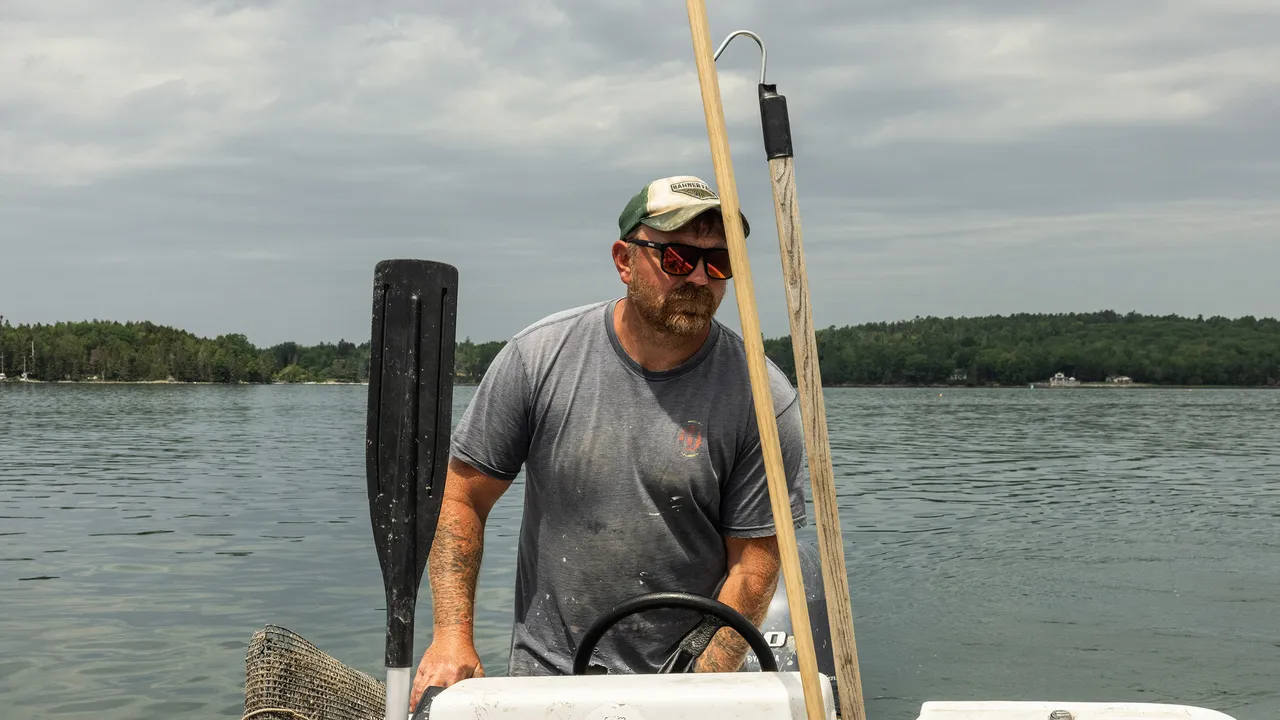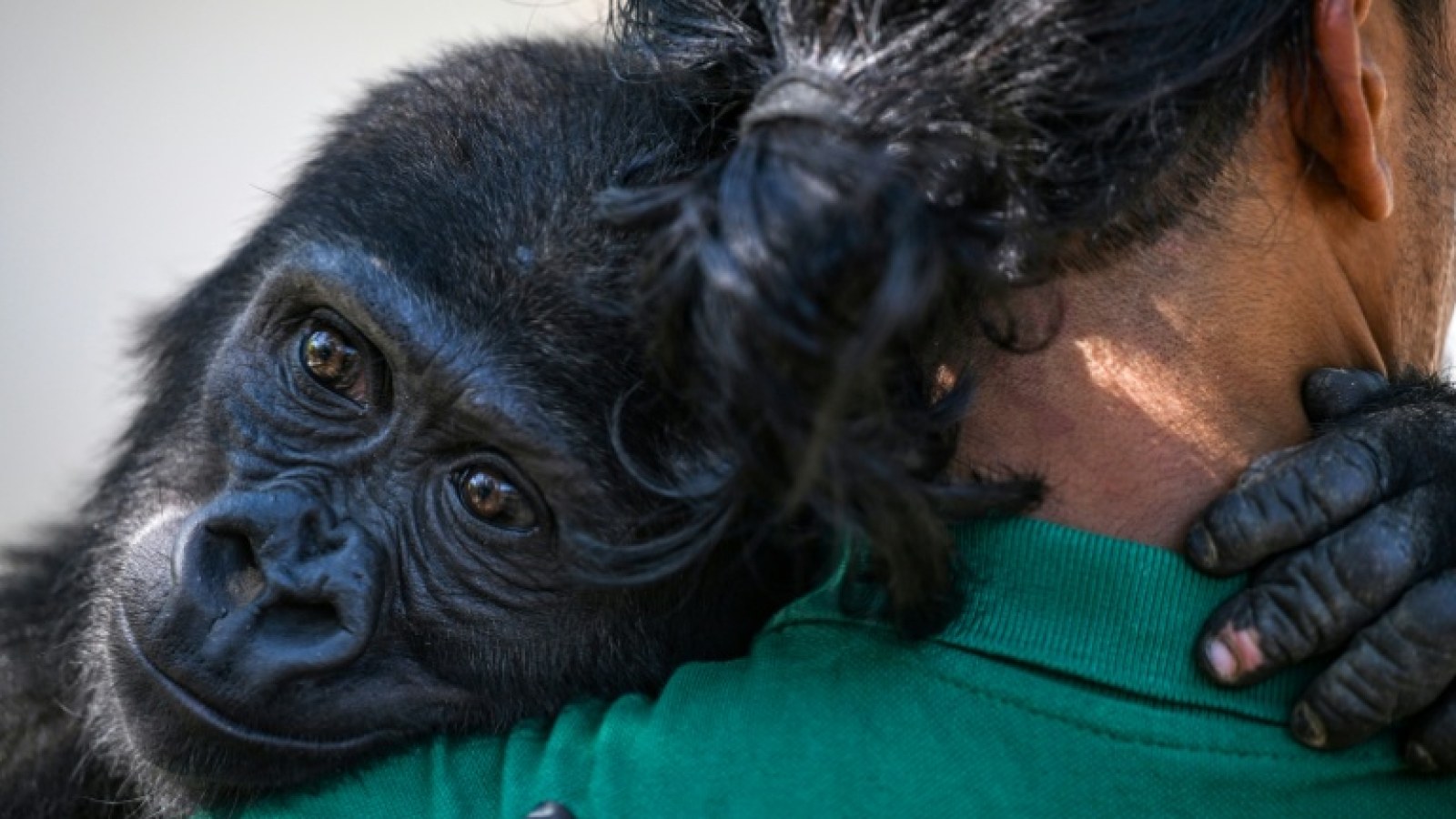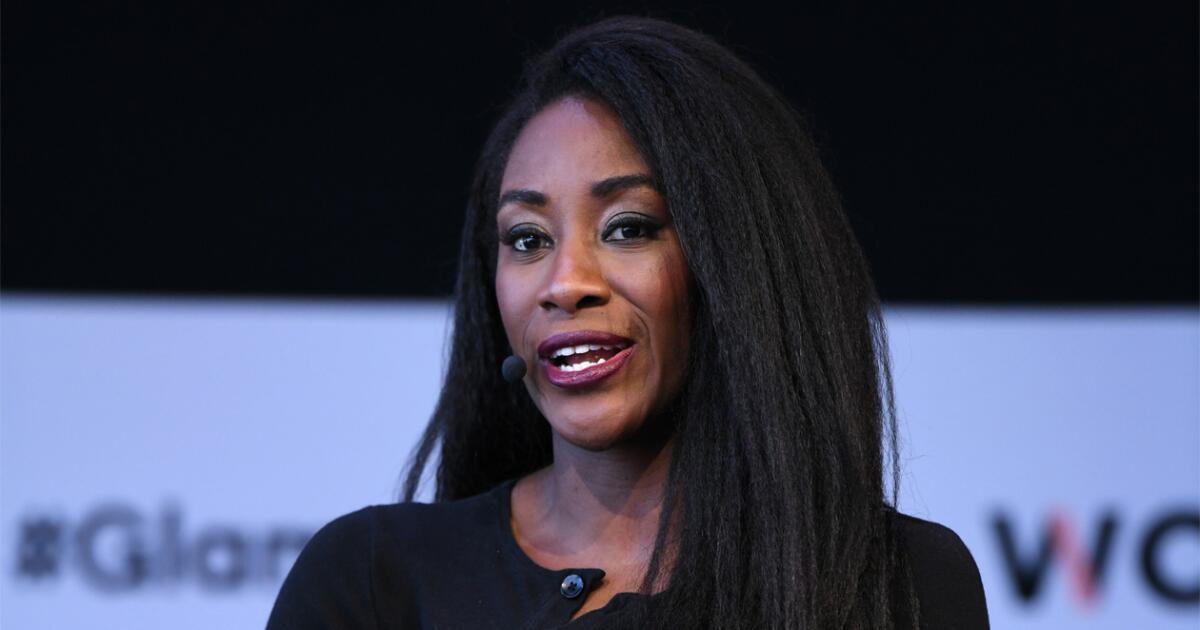
Across the bay from Bar Harbor lies the small town of Sullivan, Maine, population twelve hundred and nineteen. On August 16th, Graham Platner, the bearded, strawberry-blond co-owner of the Waukeag Neck Oyster Company, brought his Carolina Skiff over to the Sullivan Harbor launch. It was three days before a video titled “Platner for U.S. Senate” would drop, catapulting this local oyster farmer, harbormaster, and former marine onto the national stage.
The video was produced by Morris Katz, a top political strategist for New York City’s Democratic mayoral candidate, Zohran Mamdani. “Within a few minutes of talking to him, I was, like, ‘This guy owes it to the country to run for Senate,’ ” Katz recalled, of his first meeting with Platner. The video was meant to present the forty-one-year-old Maine native as a rugged and likable working-class Democratic candidate running to unseat Susan Collins, but it could just as easily have been the opener for a reality-TV show called “Oyster Man.” A macho pastiche with a Jeep-commercial soundtrack, it shows him diving in his wetsuit, chopping wood, hauling oyster cages, and doing kettlebell swings. There are closeups of his tattoos, along with shots of him holding hands with his wife, Amy Gertner, as they walk along a beach with their two dogs. Standing at the helm of his boat, Platner tells the camera, “When I tell people around here that I’m running for Senate, sometimes the initial reaction is, ‘What the ——?’ ” There’s a bleeped-out expletive, and Platner laughs. Then he gets serious: “It seems like the fabric of what holds us together is being ripped apart by billionaires and corrupt politicians profiting off destroying our environment, driving our families into poverty, and crushing the middle class.”
The campaign rollout, which was orchestrated by Platner’s senior adviser, Joe Calvello (John Fetterman’s former director of communications), raised half a million dollars in its first four days; volunteer sign-ups for the campaign averaged three hundred a day. “No one was expecting this,” Calvello told me. The Times, ABC, NBC, and Fox News covered the launch, focussing on Platner as a political novice who represented a new approach for the Party. “Platner has never run for office and seldom wears a suit,” Mother Jones noted. The launch video was viewed more than two and a half million times on X in the first twenty-four hours alone. The streamer and leftist commentator Hasan Piker showed it on his Twitch channel, where comments included “TAX THE RICH AND EAT THE OYSTERS” and “Wow this guy looks like a progressive mind in [a] MAGA body.”
I’ve spent almost every summer of my life on Frenchman Bay, near Sullivan, and, like many of my neighbors, I’ve had Platner’s number for years, and have picked up oyster orders from his boat. I’ve seen him shuck oysters at parties, fund-raisers, and at the local summer music series, where a half-dozen oysters go for twenty dollars; he also shucks them at Ironbound, a restaurant in the town of Hancock which is owned by his mother, Leslie Harlow. I first learned of Platner’s Senate run in late July by text from a friend who is close to Platner; she wrote, “Big news…” Soon, my friends were discussing over gin-and-tonics how they always knew he would be famous.
That morning in August, I met Platner at the launch, and he drove us out on his boat to his oyster farm on the bay. It’s situated off an island with a ledge so rocky that lobstermen know not to drop traps there; Platner keeps tow ropes on hand in case he needs to help stranded boaters. The haze from Canadian wildfires, which covered the bay for much of the summer, had lifted, and Mt. Cadillac, on Mt. Desert Island, was a bright green. Once we were moored, Platner pointed out the busy wildlife: bald eagles, osprey.
Earlier in the summer, a few weeks before Graham Platner fever swept Maine and beyond, a group of mostly millennial Democrats, coördinating with Maine labor leaders, community activists, and volunteers, many of them Bernie Sanders campaign alums, had been scouting the state for a candidate who could unseat Collins. These Democrats thought that the five-term, seventy-two-year-old Republican senator was vulnerable: her approval ratings were down, and Kamala Harris had won the state in 2024. After they saw a video featuring Platner—this one made by the local Frenchman Bay Conservancy in 2020, to stop a commercial salmon farm from building in the bay—they decided that he was exactly what they were looking for: a working-class guy with a military background and a deep connection to Maine.
Jason Shedlock, the president of the Southern Maine Labor Council, was involved in the search (and was the only member of the group who would speak on the record). “What we’re looking for is someone who understands that solidarity is not a spectator sport, it’s an action word,” Shedlock said. He heard that Platner was “the real deal.” They had their first conversation over Zoom. “The Zoom camera was bobbing up and down because he was on an oyster boat, and I just got off of a job site, and we had the conversation right then and there, with the wind blowing, and it was like talking to somebody who I would meet in a union hall.”
Several Maine labor figures reached out to Katz and Calvello, who closed the deal. Platner was taken by surprise by their interest. “They’re, like, ‘We think that right now Susan Collins is uniquely weak,’ ” he told me. “We think the Democrats are going to choose a bad candidate for this race specifically, and we think that you’re a good candidate for this. And Amy and I promptly told them, ‘That’s fucking insane. We work full time. We don’t have any money.’ . . . We’re just normal fucking people who have very busy schedules, and running for U.S. Senate is the most ridiculous thing that I could’ve ever heard for myself.” Platner pulled up a cage. He lifted out a mesh bag full of tiny oysters, each the size of a pumpkin seed, explaining that as the oysters grow they need more space. “It’s very much like gardening,” he said. “I’m just thinning.”
The scouting group told Platner and Gertner that they had two weeks to think it over. “About three days into it, we were, like, ‘All right, we don’t really want to, but we might have to,’ ” Platner said. “This might be another sacrifice that needs to be made in the service of the country.”
Katz considered this hesitancy a good sign. “So much of what’s broken in our politics is we have these people who think about running for office through the lens of attaining more power for themselves,” he told me later. “They’re eager. They think they’re, you know, entitled to something, and Graham was kind of the opposite. And I think reluctant public servants tend to be the best ones.”
Platner heard through some friends in D.C. that the Democratic Senatorial Campaign Committee wasn’t thrilled with the idea of his, or any other upstart’s, candidacy. “They’re not psyched about a larger primary field,” Platner told me. (The D.S.C.C. did not respond to a request for comment.) The growing field of candidates running in the June 2026 Democratic primary includes the Maine Beer Company co-founder Dan Kleban and Jordan Wood, who served as the former California congresswoman Katie Porter’s chief of staff, and who has raised more than $1.3 million so far; the New York senator Chuck Schumer has reportedly encouraged Maine’s two-term governor, Janet Mills, to enter the race.
In our conversation on his boat, Platner seemed undaunted. “I want the community that I am from to succeed,” he said. “I want the state that allowed me to come home, to give me this frankly spectacular life that I get to live, I want that to work, because there is no point in living a good life if all of your neighbors are getting fucked.” He interrupted himself. “Oh, there’s the harbor seal right here. The seals always come over. They want to see what’s going on.” There at the stern of the skiff was a small harbor seal locking eyes with me.
It would be a big leap from harbormaster to senator. Did he worry about not having enough qualifications? “We’ve been sending qualified people up there for a long time, and it’s just fucked everybody,” Platner said. “If you have a good read of American history, it shows that almost every single good thing we have ever gotten comes from people organizing, building power, and fighting for the shit that they need.”
Platner was born in Blue Hill, a forty-minute drive from Sullivan, the older of two boys. After his parents divorced, his mother moved with her young sons to Sullivan. His father, Bronson Platner, a lawyer, used to take him to the local gun club. A precocious reader, Graham devoured books on military history, especially the American Civil War, and watched Ken Burn’s documentary series about the conflict on television. “That kind of set me on the path,” he said. His mother hired a local seamstress to sew a Union uniform for him to wear to Civil War reënactments in Gettysburg and Antietam. “I still read Grant’s autobiography at least once every five years,” he told me.
Platner went to the United States Marine Corps School of Infantry and deployed to Iraq in 2005. “It was a relatively calm deployment for the first few months, mostly because the Battle of Fallujah just happened, and much of the insurgent activity in the area had been crushed in that fight,” he told me. Later, while he was on patrol at Abu Ghraib, there was an attack on the prison. (It was nearly two years after human-rights abuses were first reported at the prison; Platner was not involved.) “That was my first real taste of combat,” he said. It was an odd juxtaposition discussing Platner’s experiences in the Iraq War while looking out at the islands on Frenchman Bay. “I loved infantry combat,” he said. “It was like this kind of high-stakes game where everything you do matters and you need to make decisions under immense amounts of stress that are going to impact both your life, but more importantly, the lives of your men.”
His next deployment was in Ramadi. “From the moment we step off the birds, it is just eight months of essentially constant contact. I look back on it now, and I really don’t quite know how any of us got through it without breaking. We didn’t have a day off,” he said. Platner’s third tour was with a Marine Expeditionary Unit. “We bounced around the Indian Ocean. We’d go ashore and do some training in Kuwait, Djibouti, some liberty ports, stopping in the Seychelles. We did some anti-piracy stuff off of Somalia.” He returned to the U.S. in 2008 with only a few months left in his contract. “I have a bunch of leaves saved up, so I take something called terminal leave, which allows me to leave the Marine Corps early.”
Platner enrolled in George Washington University, but he felt out of place among his fellow-students. “I hated going to school, but I loved the learning part,” he said. He tried to rejoin the Marines but he had several forearm tattoos, which were newly banned by Marine policy, so instead he joined the Army. “I’m in Afghanistan, watching my unit do the same dumb bullshit that I watched my unit doing outside Fallujah, in ’05. It’s six years later.” Disillusioned with American foreign policy, Platner returned to Washington, D.C. He remembers it as a dark period in his life: “I hit thirty, dealing with all the usual things that come out of heavy combat service—depression, anxiety, loss of sense of belonging.” Platner moved around D.C. and bartended at the Tune Inn, on Capitol Hill, but he knew that he was in rough shape. “I clearly had a lot of undiagnosed P.T.S.D.”
While Platner was in D.C., Jock Crothers, a resident of the town of Sorrento, Maine, and the founder of the Waukeag Neck Oyster Company, reached out. He was getting older and knew that he needed someone to take over the business. He and his wife, Lisa Heyward, a Frenchman Bay Conservancy board member, had read about how farming was an ideal job for veterans. “It’s not nine to five,” Crothers told me. “You have to pay attention to what the tide and the weather’s doing. You’re working with your hands, and you’re outdoors.” In a coastal community where everyone knows one another, Crothers had been acquainted with Platner’s family for years. He had seen Platner at a friend’s holiday gathering and “knew he was a little bit at loose ends.”
As Platner pulled an oyster cage from the water and tied the line onto the skiff he thought back to when he didn’t know how any of it worked. “The first time I ate the oysters, I was, like, Holy shit,” Platner said. “I’m ready to be an oyster farmer.” With the aid of a Department of Veterans Affairs low-interest mortgage, Platner bought a house down the street from where he grew up. He feels indebted to the Maine V.A., which gave him a higher disability rating, resulting in higher compensation: “It provides me with all of my health care, provides me with a ton of support, and, without exaggeration, it saves my life.”
Platner had already met Gertner, an elementary- and middle-school art teacher, through friends before they matched on Bumble, and the couple wed last fall. “She married a small-town oyster farmer,” he observed. “Running for U.S. Senate was not part of that fucking deal.”
I asked Platner if he plans to stop swearing when he runs for office. “I know what rooms not to swear in,” he said. “But what I’m not gonna do is purposely change my personality, or put on some kind of adaptation to try to appeal to folks.”
It is difficult to predict elections in Maine. The state has an estimated population of 1.4 million, about half that of Brooklyn, and its registered voters are neatly divided into three almost equal parts: Democrats, Republicans, and Independents. Driving along the Maine coast, one sees black signs with white lettering spelling the word “RESIST” dotting the landscape. Drive inland a mile or so and Trump banners and flags dominate.
Platner’s campaign launch was big news at the local boatyard, where several Trump supporters said that they would vote for him. A local yard worker who had voted for the man he referred to as “Uncle Donnie” stood nearby during his lunch break and spoke with a faint Down East accent. “So I’ve actually known Graham for years,” he told me, “and his service to our country is a really big thing, and, you know, his values in that manner I really respect. . . . He’s kind of a redneck, blue-collar guy, and, you know, I think he could represent us really well versus what we have for options.” He added, “He’s not really a politician, which I love about him.”
The man told me that he was most concerned about health care and sanctuary cities. When asked about his own health care, he replied, “Well, we don’t have any. It costs—you know, to get insurance or whatever—it’s astronomical. I’m a father of six kids. I have a wife at home.” He told me that he recently received a thirty-thousand-dollar bill for emergency surgery for a ruptured appendix, a bill that he cannot pay.
I arrived early at the Unitarian Universalist Church in the city of Ellsworth, a building that could almost be mistaken for a mid-century ranch home, for Platner’s official Senate launch. (The church is also where Acadia Action, a local activist group, regularly meets; Platner co-organized the organization’s anti-Trump protest in Ellsworth last March.) In the parking lot, I saw several bumper stickers for Sara Gideon, the Democratic candidate who lost to Collins in 2020. Inside, volunteers were setting up in the modest sanctuary. Platner’s official speech was scheduled for 7 P.M. “Graham Platner for U.S. Senate” posters hung on the walls; large, blue campaign buttons were spread out on one table, volunteer and donation sign-up sheets on another. Gertner walked in with a large container of clipboards.
There were more than a hundred people in the packed sanctuary and almost five hundred watching on Zoom. Leslie Harlow introduced her son and, after she mentioned that she and Platner’s father had been confused when their child joined the military, Platner’s father, Bronson, called out from the audience, “I wasn’t confused. I was just opposed!” The crowd laughed. Platner addressed the mostly white older audience for twenty-two minutes about his concerns over policy failures and the unchecked power of billionaires. He also went after his party. “The Democrats have lost the working class,” Platner told the room. “Instead of showing up for working people over the past thirty years, in many ways they sold them out.”
Platner’s first meet and greet as a candidate was three nights later at the Sorrento Library. He wore a white button-down shirt with the sleeves rolled up, revealing his forearm tattoos. There, Platner spoke to an audience of a hundred and ten, from a makeshift lectern made of a floating lobster crate and a wooden side table, adorned with red-white-and-blue bunting. In the back, several volunteers were shucking a hundred and fifty Waukeag Neck oysters. It wasn’t that long ago that it would have been Platner doing the shucking. Platner looked tired but relaxed in front of the crowd, many of whom have known him his entire life. He spoke off the cuff about the issues affecting folks in Maine and across the nation: health care, the cost of living, Social Security, and how grassroots organizing can beat the establishment. He seemed more himself than he had been at the church. There were eruptions of applause and nodding heads as Platner told the gathering,“There’s a great saying in the nautical world: a rising tide lifts all ships.”
After his speech, supporters lined up to talk, hug, and take selfies with the candidate. He told several people that no one from the Democratic Senatorial Campaign Committee had called him. He also broke the news that his company’s oyster tours would be cancelled for the rest of the season, as he needed to focus on the campaign. A week later, Bernie Sanders endorsed Platner, before appearing with him at a Labor Day rally: “He’s a Mainer through and through, and he is building a movement strong enough to take on the oligarchy that is making Maine unaffordable for all except a privileged few.”
“It’s going to be a knife fight,” Joe Calvello, Platner’s senior adviser, said, of his chances. “Maine has eluded Democrats for a long, long time. This Senate seat, specifically, we thought they had it in ’20. . . . It’s the white whale.” A recent internal poll has Platner ahead of Collins by twelve points, with a fifteen-point lead over Mills, who has not officially entered the race, in a one-on-one contest. According to the same poll, after two weeks, he was already at forty per cent name recognition among Maine Democratic primary voters. Calvello was most excited by that number. “It’s a tough race. Many have gone and failed,” he said, “but we’re not going to fail.”
It’s too early to say whether this relatively unknown oyster farmer can carry his current momentum all the way to the Senate, but some people think he can. Cora Hilts, who carpooled with Platner to John Bapst Memorial High School, in Bangor, an hour’s drive each way, remembered him as someone who defied expectation. “He was the captain of the wrestling team at the same time that he was playing Henry Higgins in a musical,” she said, of the teen-age Platner, who had starred in a school production of “My Fair Lady.” When Hilts’s mother read about Platner’s Senate run, she told her daughter, “Well, I guess Henry Higgins is going to the Senate.” ♦



